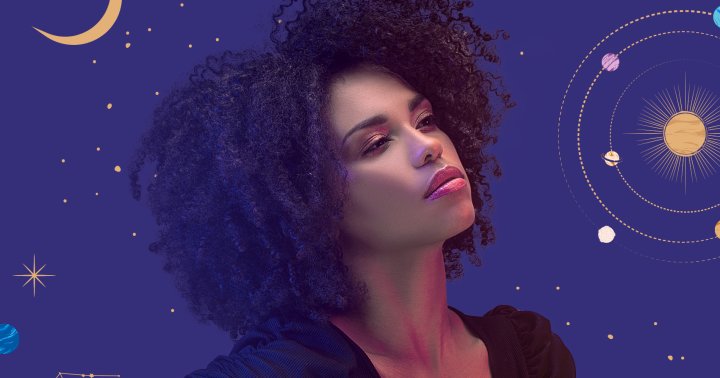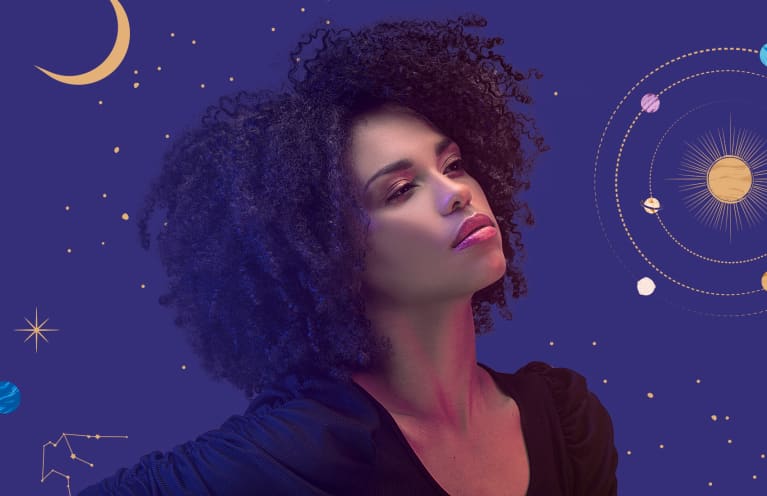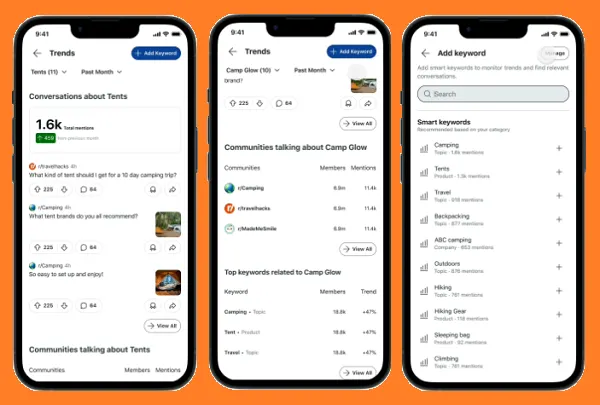This Concept Will Totally Transform The Way You Read Your Horoscope
Aspects matter.


Daily Horoscope
Check for daily updates on your sun sign

Current Events
Moon phases, seasons, and other current happenings

Our editors have independently chosen the products listed on this page. If you purchase something mentioned in this article, we may earn a small commission.
If you've dipped your toes into astrology, you probably know your sun, moon, and rising sign, but what are all those other "aspects" in your birth chart? Here we're deep-diving into one in particular: conjunctions. Here's what to know about the conjunctions in your own chart, to conjunctions in the sky on a daily basis, according to astrology experts.
The planetary aspects of astrology.
When you look at your birth chart, you'll see the various planets in certain signs and houses, but you'll also notice a series of lines that form angles or "aspects" throughout the 360-degree chart. The five major aspects are conjunctions, sextiles, squares, trines, and oppositions. Here's a brief explanation of what each means:
As astrologer and author of Queer Cosmos, Colin Bedell, explains to mbg, "An aspect is essentially a relationship between particular planets, and each relationship of an aspect talks to a particular theme—some that feel a little bit more tension, which can provide some opportunity for growth, and then other aspects can have a little bit more ease, which may offer some complementing energy."
And not only do we all have unique aspects within our own charts, but on a daily basis, the planets form different aspects, influencing the energy of that day.
Further, if you're ever doing a relationship reading between two charts, the aspects between two people can also say a lot about their potential compatibility. For example, having your Venus (the planet of love) conjunct or trine with a partner's is likely going to be positive, whereas square Venus aspects may signal some problems ahead.
What a conjunction means.
According to Bedell, when you think conjunction, think conjoined. "Essentially what it means is that these energies have become really integrative, and allow us to see some complimentary energy available to us," he explains.
For example, take Venus and Jupiter. Bedell notes that with Venus being the planet of relationships and Jupiter being the planet of success, "when we see a Venus-Jupiter conjunction, that then means we have a successful relationship."
And again, we can look at conjunctions in our own charts, when comparing our charts with someone else's, or when we look at the planetary positions in the sky on any given day. As modern mystic and author of Astrology SOS Imani Quinn, tells mbg, we had three Jupiter and Pluto conjunctions back in 2020, with Pluto relating to death and rebirth, and many astrologers point to that conjunction as relating to the rise of the pandemic.
The key to remember here is that specific conjunctions can only be understood if you understand the themes of the planets in question, and how they relate to your chart as a whole. And speaking of, it's worth noting that it's possible not to have any conjunctions in your chart, and that isn't inherently a good or bad thing.
Reading your birth chart:
Understanding the planets:
As a refresher, here's a quick look at what each planet represents in astrology:
Understanding the houses:
Once you identify which signs the planets are in, you can also take a look at which houses they fall under. You'll start to see how the specific combinations in your chart compound on each other. For example, Mercury in Gemini in the first house would likely lend someone a chatty personality.
Here's a quick overview of the house themes:
Now for the fun part—you can start to put all the pieces together to understand what a particular conjunction means for you (or for compatibility if comparing charts, or for the day, if looking at a daily chart).
As Quinn explains to mbg, you can think about whether the themes of the planets in question "work" together. For example, Venus and Mercury conjunct in Taurus, in the seventh house, would indicate an ease when it comes to partnership and expressing emotions. Uranus and Saturn, on the other hand, have very different energies.
Another example, Quinn notes, is that Neptune and Jupiter are both in Pisces right now. "That's a good thing, because Neptune is governed by spirituality and dreams, and so is Pisces—so it's basically in its resting home—and then Jupiter is the planet of luck, so it's going to amplify our dreams and our spiritual space."
But take heed; Conjunctions aren't always easy. Quinn explains that someone who has their sun, moon, and rising conjunct in Gemini, for example, might have a really hard time making decisions. It really comes down to the specific "cocktail" of a particular conjunction, and the themes associated with the respective sign, planet, and house.
As you learn more about astrology and your own chart, understanding any aspects present will become easier, though if this is all a bit much to take in on your own, you may find it helpful to get a reading from an astrologer, or check out one of the many astrology apps available today for more information on your unique aspects. (I'm personally a fan of the app Time Passages for in-depth chart analyses.)
Astrology goes much deeper than knowing which signs you have planets in. Aspects bring the whole chart into focus, so you can understand the relationship between all the planets and how they impact you, with conjunctions showing you where certain themes and energy are being amplified.
See What The Future Holds.
Your FREE horoscope delivered daily.
You are now subscribed
Be on the lookout for a welcome email in your inbox!
https://www.mindbodygreen.com/articles/conjunct-astrology

 FrankLin
FrankLin 
































